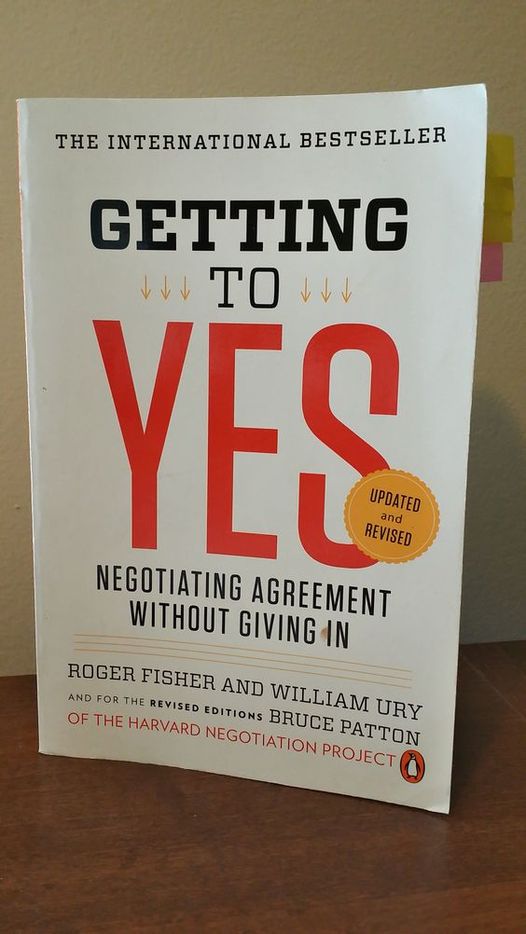Published in 1981, Getting to Yes by Roger Fisher and William Ury is a seminal work on negotiation that has helped millions of people around the world achieve mutually beneficial agreements.
Here are 12 key lessons from the book:
1. Separate the People from the Problem:
Focus on the interests, not the positions: Understand the underlying needs and concerns of both sides, not just their stated positions.
Treat people with respect: Even in tense situations, maintain a positive and respectful attitude towards the other party.
2. Focus on Interests, Not Positions:
Identify the underlying interests behind each position: What are the needs and concerns that each party is trying to satisfy?
Be prepared to trade interests: Negotiate based on interests, not positions, to find solutions that meet everyone's needs.
3. Invent Options for Mutual Gain:
Brainstorm a range of potential solutions: Don't settle for the first solution that comes to mind.
Be creative and flexible: Explore different options and be willing to compromise.
4. Insist on Using Objective Criteria:
Develop criteria that are fair and independent of either party: This helps to ensure that the final agreement is based on reason, not power.
Be prepared to defend your criteria: Explain why you believe your criteria are fair and objective.
5. Be Prepared to Walk Away:
Have a BATNA (Best Alternative To a Negotiated Agreement): Know what you will do if you cannot reach an agreement.
Be willing to walk away from a bad deal: It is better to have no agreement than a bad agreement.
6. Build Trust and Rapport:
Be transparent and honest: Openly share information and be upfront about your intentions.
Be empathetic: Try to understand the other party's perspective and feelings.
7. Communicate Effectively:
Listen actively: Pay attention to the other party's words and body language.
Ask clarifying questions: Ensure that you understand the other party's position before responding.
Speak clearly and concisely: Avoid using jargon or technical terms.
8. Be Flexible and Open to Compromise:
Be willing to adjust your position based on new information: Don't be afraid to change your mind if you learn something new.
Focus on finding common ground: Look for areas where you agree with the other party, and build on those areas.
9. Be Persistent and Don't Give Up:
Negotiation is a process, not an event: It takes time and effort to reach an agreement.
Don't get discouraged by setbacks: Keep working towards your goals, even when things get tough.
10. Celebrate Successes:
Take time to acknowledge and celebrate your achievements: This will help you stay motivated and keep moving forward.
Use your successes to build momentum: Each successful negotiation will make future negotiations easier.
11. Apply the Principles to All Your Negotiations:
The principles of Getting to Yes can be used in all aspects of your life, not just business negotiations: Use them to resolve conflicts with friends, family, and colleagues.
Share the principles with others: Help others to learn how to negotiate effectively and achieve mutually beneficial agreements.
12. Remember, Negotiation is a Skill that Can Be Learned and Developed:
The more you practice, the better you will become: Don't be afraid to try new things and experiment with different approaches.
Seek feedback from others: Ask trusted friends or colleagues to give you feedback on your negotiation skills.
By following these lessons, you can become a more effective negotiator and achieve better results in all areas of your life. Remember, getting to yes is not about winning or losing, but about finding solutions that work for everyone involved.




